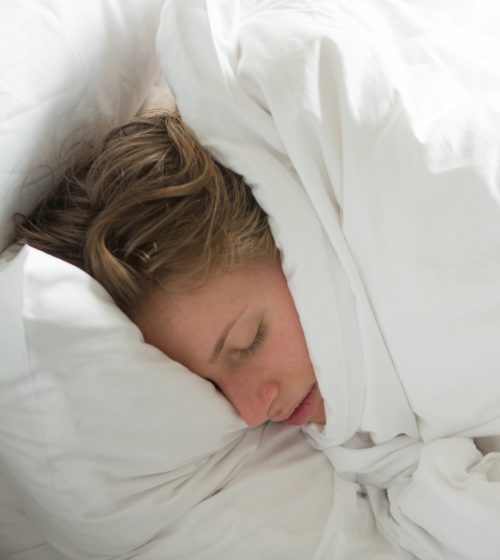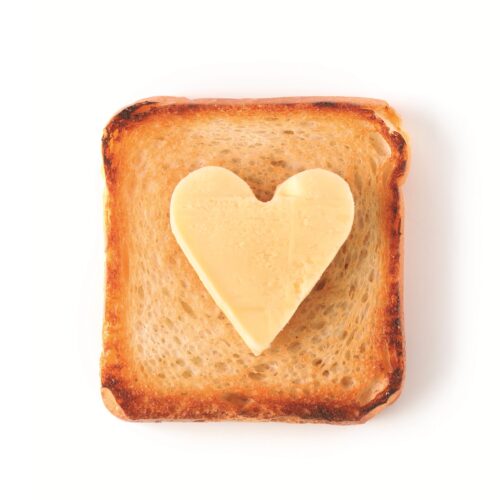
We reveal the culprits behind insomnia, the associated health risks, and what you can do to sleep easy.
It’s not uncommon to have an occasional sleepless night – stress, indigestion and emotions can all interfere with sleep. But chronic insomnia can be defined as having difficulty falling asleep, difficulty maintaining sleep, or not getting restorative sleep (quality sleep), for a month or more.
The repercussions of inadequate sleep on productivity can be costly, but it’s not as devastating as the effect it can have on your health.
Seven sleep saboteurs
Alcohol: Contrary to what you may believe, alcohol doesn’t help you sleep. While it may make you feel sleepy initially, it interrupts your sleep sequence and duration, and makes you wake earlier the next morning. You may also find you don’t sleep as soundly throughout the night.
Caffeine: This is a stimulant which blocks sleep-inducing chemicals in the brain and increases adrenaline production, making you feel temporarily more alert. Caffeine is the wake-up fuel for so many, but drinking too much caffeine can keep us awake when we should be sleeping.
Stress: Stress can send your mind into overdrive and make it difficult to relax. Little everyday anxieties, as well as more long-term anxiety disorders, can keep your mind alert (no matter how exhausted you are) and prevent you from falling or staying asleep. At the other end of the scale is depression, which can also interrupt your sleep, but it more commonly has you sleeping too much due to chemical imbalances in the brain.
Medical conditions: Conditions which cause pain, such as arthritis, can keep you awake. Medications for certain conditions – such as corticosteroids, blood pressure medications and anti-depressants – can also interfere with sleep. Over-the-counter medications, including weight-loss products and pain medications, contain caffeine and other stimulants which can keep the mind alert.
Exercising before bed: Strenuous exercise within two hours of going to bed can increase your core body temperature and reduce levels of melatonin (a hormone which is important for the body’s circadian rhythm), making it more difficult to fall asleep.
Lifestyle changes: Changes to your environment or work schedule, such as shift work or moving house, can disrupt your body’s internal clock, making it difficult for you to fall and stay asleep.
Big meals: Eating a light snack before bed is fine, but eating too much can leave you feeling uncomfortable, especially when lying down, and therefore make it difficult to sleep. After eating, some people also experience
heartburn – the backflow of acid and food from the stomach into the oesophagus – and this can be painful when lying down.
The facts
Weight-gain: Sleep loss disrupts regulation of the release of hormones into the blood, including hunger-suppressing leptin and hunger-promoting ghrelin. Research has found sleeping for only four hours for two consecutive nights decreases leptin levels and increases ghrelin levels, making you feel hungrier. Sleep-loss has therefore been found to promote weight-gain and obesity. And it may actually be worse than this. New research from Germany has found this increase in ghrelin levels may occur after just one night of inadequate sleep.
Insulin resistance and diabetes: Less than five hours of sleep a night can double your risk of developing type 2 diabetes. Research has found that a lack of sleep reduces insulin sensitivity within the body, meaning more insulin is needed to store the same amount of glucose. Also known as insulin resistance, these high insulin levels are seen in prediabetes and increase the risk of developing type 2 diabetes. The risk of diabetes also increases when you sleep for nine hours or more a night.
Heart disease: A US study of more than 71,600 women found that having less than five hours of sleep a night increases the risk of developing heart disease. Too little and too much sleep put the body into an alert state, increasing the production of stress hormones and elevating blood pressure. High blood pressure is the major risk factor for heart disease.
Accidents: People suffering from insomnia have an increased risk of accidents. Studies have shown that sleep-deprived people whose jobs involve driving have a higher risk of driving accidents. 37% of these people nod off at least once on the job during their career. Daytime sleepiness also increases a worker’s risk of injury.
Sleeping pills: Many people turn to sleeping pills, but the longer you take them, the more physically and psychologically dependent on them you become. Many experts believe sleeping tablets cause ‘rebound insomnia’, which means it takes longer to fall asleep after you stop taking them.
10 ways to better sleep
- Go to bed at the same time each night: Your body’s circadian rhythm (the natural 24-hour cycle rhythm) works best when you get up and go to bed at the same time each morning and night.
- Practise a pre-bed ritual: Have a routine before you go to bed. Shower, brush your teeth, read for 15 minutes and then lights out.
- Improve the sleeping environment: Make your sleeping environment cosy. The bed should be comfortable and the room shouldn’t be too hot nor too cold.
- Bed is for sleep and sex: Anything else, such as TV viewing or work, should be kept out of the bedroom.
- Refrain from napping during the day: Napping for longer than 30-45 minutes during the day can interfere with your evening sleep. Only nap if you can still sleep well at night.
- Limit stimulants: Avoid having caffeine or alcohol within four to six hours of going to bed.
- Enjoy natural light during the day: Your circadian rhythm is sensitive to light and dark. Light tells your body to move, whereas the dark tells your body to sleep.
- Avoid large meals right before bed: Large meals can disrupt sleep, so leave at least two hours between your dinner and bedtime.
- Exercise daily: Regular exercise improves your quality of sleep and reduces your stress and anxiety levels, making it easier to sleep.
- Enjoy a snack containing tryptophan: Have a snack such as milk, banana, almonds, tuna on whole grain toast or yoghurt. Tryptophan is needed to make sleep-inducing substances serotonin and melatonin. Eating carbohydrates with tryptophan-containing foods (such as tuna on whole grain toast) makes the tryptophan more available for the brain, while calcium helps the brain use the tryptophan to make melatonin. This explains why dairy products are the top snooze foods.
www.healthyfood.com











